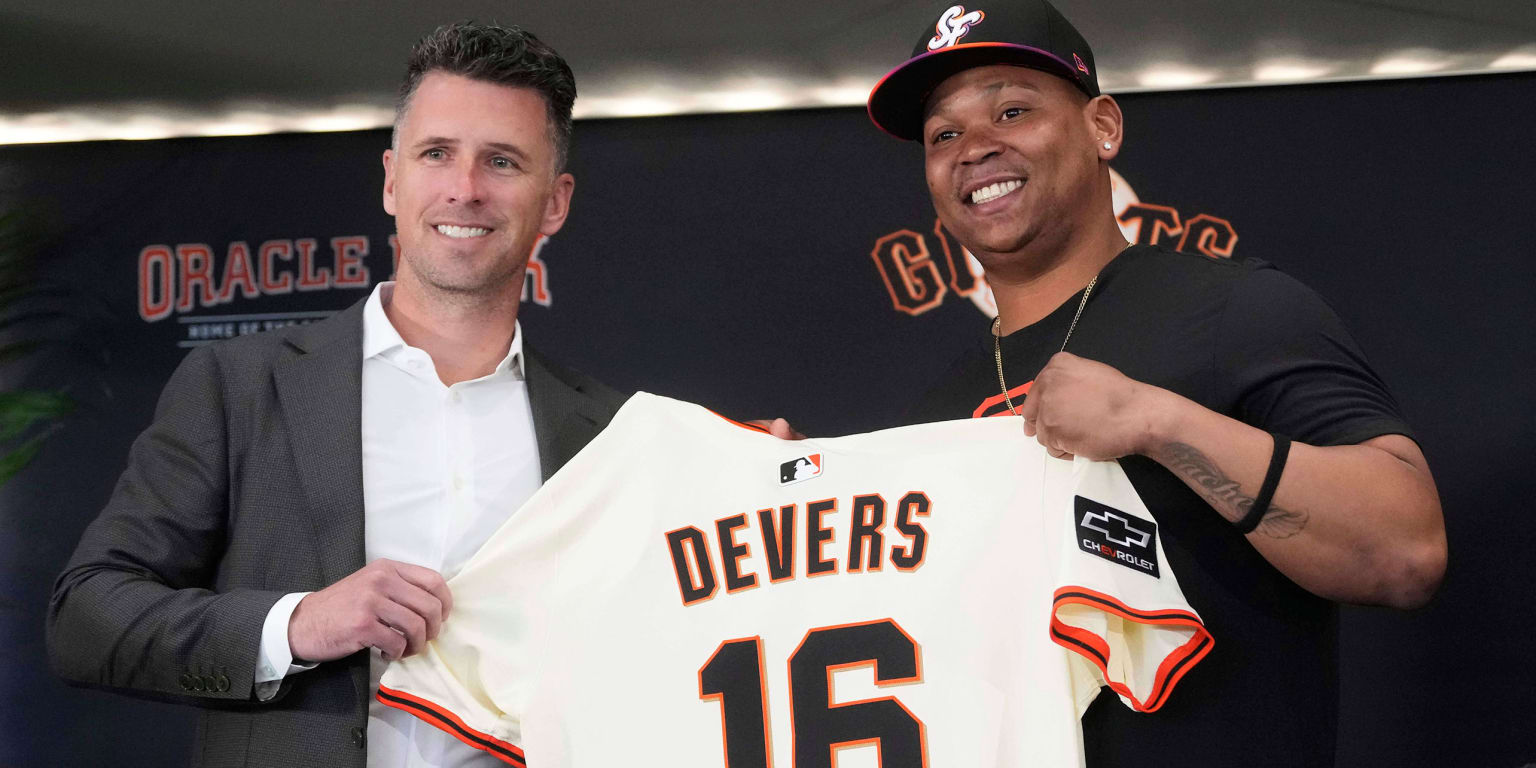What Happened
On June 17, 2025, the San Francisco Giants officially introduced Rafael Devers as their new player during a press conference at Oracle Park, coinciding with the start of a three-game series against the Cleveland Guardians. This event marked the beginning of Devers’ tenure with the Giants following a significant trade from the Boston Red Sox, where he had been a key player since signing with the team as a teenager in 2013. The trade was described as a blockbuster deal, with the Red Sox receiving several prospects in return, including left-hander Kyle Harrison and right-hander Jordan Hicks.
Devers’ departure from Boston was reportedly due to mounting tensions related to positional assignments, particularly after the Red Sox acquired Alex Bregman, which led to Devers being asked to switch positions. His reluctance to move from third base and subsequent refusal to play first base after an injury to Triston Casas contributed to the decision to trade him. In his introductory remarks, Devers expressed gratitude to the Red Sox while emphasizing his commitment to winning with the Giants.
Key Details
- Trade Details: The Giants acquired Rafael Devers from the Red Sox in exchange for Kyle Harrison, Jordan Hicks, 2024 first-round draft pick James Tibbs III, and pitching prospect Jose Bello.
- Contract: Devers is in the second year of a 10-year, $313.5 million contract extension signed with Boston in 2023.
- Debut Performance: In his first game with the Giants, Devers batted third and served as the designated hitter. He is expected to split time between designated hitter and first base, as the Giants manage his transition to new positions.
- Manager’s Comments: Giants manager Bob Melvin noted that Devers is open to playing wherever the team needs him, which is a shift from his previous position-related disputes in Boston.
- Starting Lineups: The Giants faced the Guardians with a lineup that included Devers, while the Guardians featured players like Jose Ramirez and Carlos Santana.
Multiple Perspectives
The trade has elicited a range of reactions. Supporters of the Giants view Devers as a significant addition to their lineup, with Giants president of baseball operations Buster Posey praising him as a “dude” who can elevate the performance of his teammates. Posey emphasized Devers’ ability to perform under pressure and his potential to help the Giants compete for a World Series title.
Conversely, some analysts have raised concerns about the circumstances surrounding Devers’ exit from Boston. The tensions that led to his trade highlight challenges in player management and team dynamics. Critics argue that the Red Sox mishandled the situation, allowing a talented player to leave rather than resolving the issues internally.
Additionally, the Guardians, currently at a .500 record, are looking to improve their standing in the league. The outcome of this series could significantly impact their season, especially as they face a formidable Giants team bolstered by Devers’ presence.
Context & Background
Rafael Devers has been a prominent figure in Major League Baseball since his debut, known for his powerful hitting and strong performance at third base. His trade from the Red Sox comes at a time when the team is undergoing changes, including the addition of new players and a reevaluation of their roster strategy. The Red Sox’s decision to trade Devers reflects broader trends in baseball regarding player contracts and positional flexibility.
The Giants, on the other hand, have been seeking to enhance their roster to remain competitive in the National League. Devers’ arrival is seen as a strategic move to address gaps in their lineup, particularly in power hitting, as the team has not had a 30-home run hitter since 2004.
The series against the Guardians is significant for both teams, as the Giants aim to solidify their position in the playoff race, while the Guardians look to gain momentum and improve their standing in the American League Central.
What We Don’t Know Yet
While the trade has been completed and Devers has joined the Giants, several uncertainties remain. It is unclear how effectively he will adapt to his new roles, particularly at first base, where he has no prior experience. The Giants are taking a cautious approach to his transition, which may affect his performance and the team’s overall strategy in the short term.
Additionally, the long-term implications of this trade for both teams are still unfolding. The performance of the prospects acquired by the Red Sox will be closely monitored, as will Devers’ impact on the Giants’ success in the coming seasons. The dynamics within the Red Sox organization and how they address their roster needs moving forward will also be critical to watch.
As the season progresses, the outcomes of this trade and its effects on both franchises will become clearer, providing insights into the effectiveness of their respective strategies in the competitive landscape of Major League Baseball.


